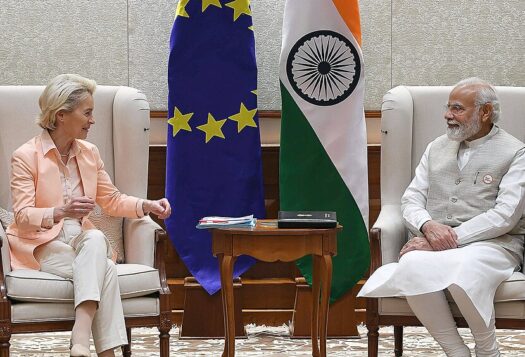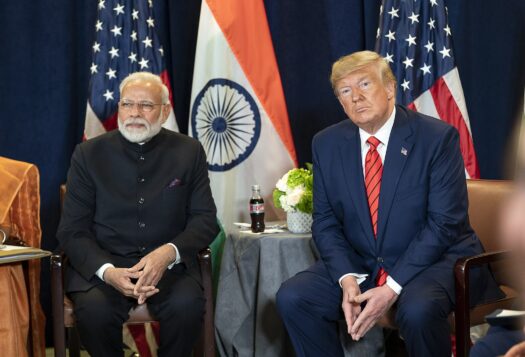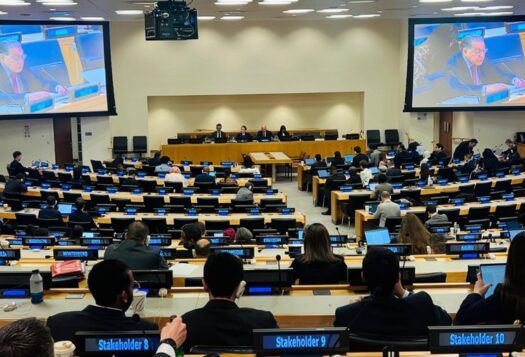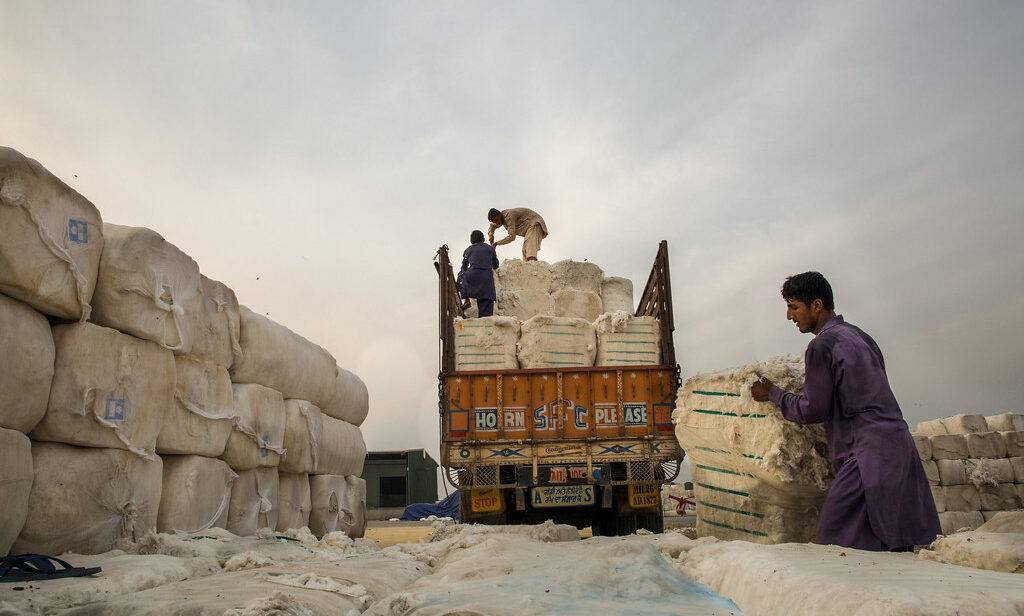
The recent warming in ties between India and Pakistan has renewed hope for bilateral relations, particularly with former Pakistani Prime Minister Shehbaz Sharif expressing willingness to resume bilateral dialogue with India. Pakistan also allowed their men’s cricket team to travel to India for the Cricket World Cup scheduled for later this year. Following a downturn in ties since the 2019 Pulwama/Balakot crisis, these developments present a welcomed change for those living along the disputed border between India and Pakistan.
While international trade and trade along the Line of Control increased in the decade leading up to 2019, a complete suspension of trade since then has severely impacted stakeholders, particularly the border communities. With cross-border economic potential assessed at USD $37 billion, India and Pakistan should leverage recent rapprochements to re-establish economic ties including international trade and trade along the Line of Control (LoC).
Cross-Border Economic Ties (2003-2019)
Over the decades, bilateral economic and political engagements between India and Pakistan resulted in a three-tiered trade arrangement including direct international trade, cross-Line of Control (LoC) trade through Jammu and Kashmir, and indirect trade through third countries like the United Arab Emirates. As a result, business communities in India and Pakistan have created a network for these economic engagements while navigating political tensions and legal changes.
Periods of political rapprochement which produced the Lahore Declaration in 1999 and the Agra Summit in 2001 were attempts to revive peace and normalize bilateral relations and economic ties. Cross-border people-to-people linkages gained momentum following the 2003 ceasefire agreement between India and Pakistan, which introduced 72 Confidence-Building Measures (CBMs) and allowed greater trade and travel across the LoC. Two bus routes through Srinagar-Muzaffarabad and Poonch-Rawalakote, inaugurated on April 7, 2005, and June 20, 2006, respectively, further facilitated movement across the LoC. The bus service allowed families who were divided on either side of the LoC to meet each other and reconnect after being separated for decades.
The downturn in India-Pakistan trade relations, further exacerbated by the outbreak of COVID-19, added to the woes of the stakeholders involved, especially border communities.
The composite dialogue between India and Pakistan from 2004 to 2008, which focused on normalizing relations, was significant in initiating CBMs like cross-LoC travel and trade. During a meeting held in May 2008, foreign ministers of both countries agreed to increase the frequency of the bus service for both routes to increase people-to-people contact at the LoC and further allow intra-Kashmir trade and truck services. The India-Pakistan Joint Working Group, which met in July 2008, showed political will towards cooperation on Kashmir-centric initiatives, by simplifying the issuance of travel permits, increasing the frequency of buses on the Srinagar-Muzaffarabad route, and determining the list of tradable items for the truck service.
Later in September 2008, India and Pakistan finalized arrangements on the procedures for the movement of trucks, drivers permits, code of conduct for drivers, security aspects, and timing for the truck services. Finally, on October 21, 2008, cross-LoC trade commenced through both the Srinagar-Muzaffarabad and Poonch-Rawalkote routes. The trade started based on agreed Standard Operating Procedures (SOPs), between India and Pakistan, which laid down the modalities for trade. It allowed 21 items duty-free passage from each side without any financial transactions as this trade was ‘barter’ in nature. The trade would take place four days a week with limits on the number of truckloads of goods that could be exchanged daily and returned empty on the same day.
Impact on Cross-Border Communities
The Pulwama attack in February 2019 severely strained economic ties. Following the attack, India revoked Pakistan’s Most Favored Nation (MFN) status and subsequently imposed a steep 200 percent customs duty on all Pakistani goods. In response to the Jammu and Kashmir Reorganization Bill, Pakistan suspended bilateral trade with India in August 2019, effectively terminating economic engagement between the two nations. The downturn in India-Pakistan trade relations, further exacerbated by the outbreak of COVID-19, added to the woes of the stakeholders involved, especially border communities.
Retrospectively, cross-LoC trade is still considered one of the most significant CBMs taken by the two countries in recent history. The term LoC is also referred to as Line of Commerce and even Line of Cooperation by the local communities in the border areas as it served as a source of livelihood for the families along the LoC. During the decade of its operation from 2008 to 2019, cross-LoC trade was showing increasing trends. However, the newfound rapprochement was not without operational challenges. Without communication channels, a banking system, and regulated processes for trade, traders were forced to operate primarily on ‘trust’ with no mechanisms for communication to dispute settlements. These challenges limited the economic potential of the trade. Nevertheless, cross-LoC trade expanded from USD $300,000 in 2008-09 to over USD $1.2 billion cumulative trade in ten years through 2019.
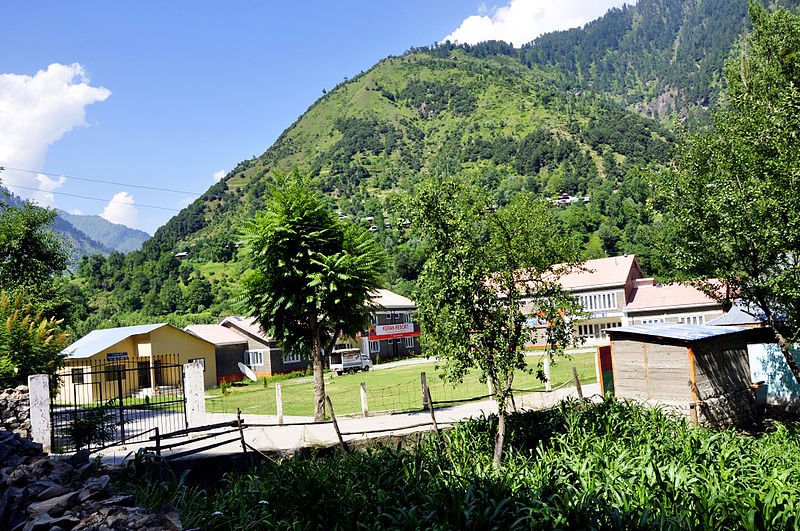
In the years leading up to 2019, people living along the LoC have signaled enthusiasm for this trade as it offered economic opportunities in the border areas. Cross-LoC trade emerged as a significant source of employment, generating over 170,000 days of work from 2008-2019, benefiting the local families in these border areas. This trade ecosystem not only provided livelihood opportunities for the trade community but also extended to various stakeholders including the transport sector, restaurants, workshops, etc.
Cross-LoC trade also helped enhance connectivity for the otherwise isolated border areas of the districts of Poonch and Baramulla. Based on research conducted by the Bureau of Research on Industry and Economic Fundamentals (BRIEF), during the last ten years, increased cross-border trade generated freight revenue of about USD $8.5 million for transporters in Jammu and Kashmir, on account of 111,113 trucks exchanged and around USD $12 million paid to laborers. The trade value and the volumes may not be significant for India’s overall trade ecosystem, but the value of this CBM should be viewed from the perspective of the positive economic impact on the border economies and its ability to enhance peacebuilding in the region.
The research also highlighted the impact on the stakeholders post-suspension of cross-LoC trade in April 2019 because of events after the Pulwama attack in 2019. According to the report, the suspension in trade at two trading points – Uri-Muzaffarabad and Poonch-Rawalakot – impacted 4,229 families that were all directly involved in the day-to-day trade operations at the two trading points. These families were rendered without any livelihood and the impact of COVID-19 further exasperated the impact on these families. CBMs like cross-LoC trade also play a role in maintaining the social and security aspects in the otherwise volatile border areas.
Renewal of Economic Engagements
While the resumption of economic engagement in the form of international trade and cross-LoC trade between India and Pakistan remains uncertain, the trade community remains hopeful. The recent outreach by former Pakistani Prime Minister Shahbaz Sharif and support from the U.S. State Department towards dialogue between India and Pakistan offers hope to the business community. Economic engagement could open avenues for addressing other issues between the two countries, such as political disputes.
A comprehensive approach to transparency must be applied across the entire ecosystem of cross-LoC trade.
The process of re-engagement could start with the resumption of bilateral dialogue which should also focus on the economic re-engagement in the form of international trade and cross-LoC trade and reviving the full-strength diplomatic missions apart from discussions on other political issues. Any process of economic re-engagement at the government level also requires addressing critical policy-level issues in cross-LoC trade to instill confidence among stakeholders.
Trade has faced negative publicity in recent years due to concerns over illicit trade, narcotics, smuggling, and tax evasion. A comprehensive approach to transparency must be applied across the entire ecosystem of cross-LoC trade. This includes revisiting the Standard Operating Procedures (SOPs), invoicing practices, clear GST and interstate tax norms to avoid tax evasion, and trader registration processes. Clarity on Harmonized System (HS) codes is essential to prevent misrepresentation of commodities, and robust rules of origin should be established to avoid the influx of third-country goods. Upgrading infrastructure, including security-related measures like truck scanners, and implementing a robust trader registration policy will ensure that credible traders are involved in the trade, further enhancing its legitimacy and making it resilient to negative narratives.
The recent signals for renewed dialogue and people-to-people initiatives provide optimism for the region. Reinitiating CBMs like cross-LoC trade can demonstrate hope for reconciliation and commitment toward peaceful coexistence. There is a precedence of continuing cross-LoC trade during tumultuous events such as the Mumbai attacks in November 2008, which was just one month after the cross-LoC trade was started, and the Uri attacks in 2016. These precedents give hope that India and Pakistan can move forward and reinitiate economic ties for the sake of the livelihood of stakeholders in the border economies.
Also Read: India and Pakistan Must Negotiate Nuclear Responsibilities.
***
Image 1: Facilitating Cross-Border Transport via Flickr.
Image 2: India-Pakistan LoC via Wikimedia Commons.
